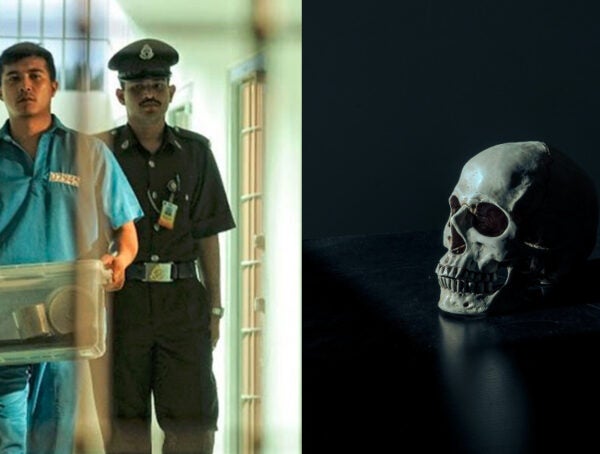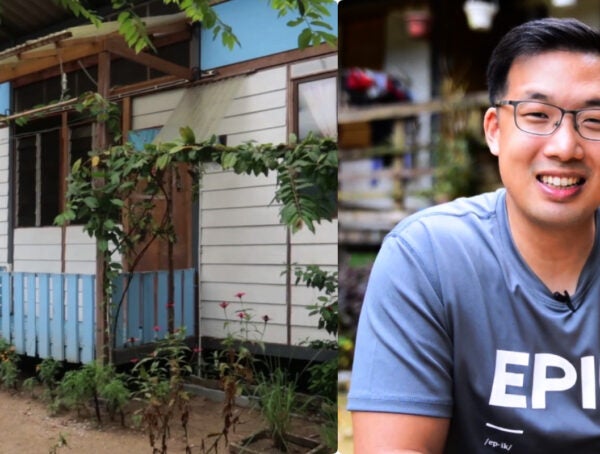It was a stroke of unbelievable luck.
I received news of my scholarship more than a decade ago now: Though the memory of the call is now fuzzy — what remains clear in my mind is running to my parents’ room to tell my mother, and the sheer joy on her face after.
It was at this moment that I felt awash with gratitude, but also stunned with disbelief. I had spent most of the intervening weeks since the interview pushing it to the back of my mind, bracing for disappointment — but here I was after a one-minute call looking down a path that had not been previously known, or even imagined.
It was unbelievable luck.
And that’s what I would still call it today. Unbelievable luck. Some people have since told me that I should give myself more credit and not discount my own hard work or intelligence when I say that getting the scholarship was a very fortunate or lucky thing to have happened.
This seems to imply I was deserving of the award from self-determination and effort alone. But having met people from a diverse range of life experiences who have gone on to make very different decisions throughout their twenties and onwards, I can say with greater certainty now that it was indeed more like a lottery than a test of intelligence.
Talent and grit are more common than we’d like to think, while opportunities aren’t.
When I met other scholarship students, it made me reconsider my values.

In a full circle moment, I’ve had the chance to meet and interview a number of scholarship applicants in recent years.
These have always been seismic moments in which I reconsider my values and what it means to be a well-rounded, successful individual. There have been some very impressive interviews with students of age-defying eloquence, quick-wittedness and familiarity with world affairs.
These are traits that are in part to the credit of hard work, but they also culminate from a variety of circumstances and legacies outside the individual’s control: Home environment, social circles, location, school or local facilities, mentorship from school alumni, and so on.
There is something, however, that careful preparation, elocution and fast-thinking cannot grant: And that is clarity of purpose. Most candidates come in prepared to convince the panel why they’re deserving of the award. But few who walk into the room have thoroughly considered what they want the scholarship for.
My friend turned down an offer from Oxbridge.

Many years ago, I had a friend who received an Oxbridge conditional offer — which she eventually met with stellar A Level results.
She had previously gotten college sponsorship, and would have needed a university-level scholarship to carry on — she applied for a few, got rejected by some, and was offered one that had a relatively lengthy bond.
As she relayed all this to me at one of our meet-ups, I was in complete awe. I was at this time the sort of student for whom getting accepted to Oxbridge would have represented the pinnacle of academic achievement, maybe even of existence itself. So what came next really just blew me away:
“I turned down the offer.”
She explained that she thought about it, and thought that she would likely break the bond, so it’s best if it went to someone else. There are some things that she’d like to do later on – maybe an academic, do frontier research, programming – whatever she had in mind wasn’t something she’d get to do during the bond.
I note here that she didn’t have the fallbacks, connections or the financial security you’re probably thinking she has. She just had a goal. That goal wasn’t aligned with the path to Oxbridge.
And so, as she put it cheerfully then, “Just gotta start all over, find something else. Life always finds a way.”
“I want to keep trying. There will always be a way.”

Much later, I met a candidate who said almost the exact same thing. She had just found out that she wasn’t selected for the scholarship that she had just been interviewed for.
She was distraught, sharing that the group presentations were the most challenging; with everyone so eloquent and assertive, it was hard to get a word in edgewise.
We talked for a while, and she shared that she was the first student in her school’s history to have been called for a scholarship interview. With her school’s reputation riding on her success, she’s determined to open the doors that were previously undreamt of before she made it here.
“I want to keep trying. I’m sure I’ll get to where I need to be, because there will always be a way.”
Both my friend and the candidate have since gone on to do remarkable things with their lives: The former is now with a tech company in the US, having segued into a programming career after obtaining an economics degree with a university-sponsored scholarship. The latter received a state scholarship, and is now well into her biochemistry degree.
But these aren’t the achievements that I am in awe of. What I admire most is the largeness of their lives. The intellectual curiosity, vision, and assuredness that underlies each step forwards into the future.
Disappointment needs to light a flame in you, not extinguish it.

And therein lies my message to the individuals reading this who are thinking about applying for scholarships, or feeling anxious just by the very thought of them: The scholarship is a means to an end, and that end is something you decide on.
The scholarship may influence your choices, but at the end of the day it should not, and cannot, define who you are and where you want to go.
Seventeen is a good time to cultivate an independence of mind, if you have not already; to reflect on what drives you, what you want from life, and why you want them.
What do you hope to be ten years from now? Write it down, and refer to that soon disintegrating piece of paper every now and then – after interviews, exam results, graduations, a hard day at work, other life milestones –
Are you still on track to becoming that person?
If you are, then nothing else matters – not even the scholarship.
For more stories like this, read: 7 Quotes in 7 Days: How I Turned Myself Around With The Power Of Words and What I Learnt About Self-Worth After I Got Laid Off At 30.
You might also like
More from Real People
‘A RM100 fee cost a company 5 years of revenue’ shares M’sian
This story is about a Malaysian who learned that bureaucracy can be defeated simply by not arguing with it.A billing …
‘I quiet-quit, upskilled, and tripled my salary,’ shares M’sian engineer
This story is about a Malaysian who learned that loyalty without leverage leads nowhere in the corporate world.After years of …
‘I did everything right, and it still wasn’t enough’ shares M’sian graduate
This story is about a Malaysian graduate navigating big dreams in a job market where a degree no longer guarantees …


















